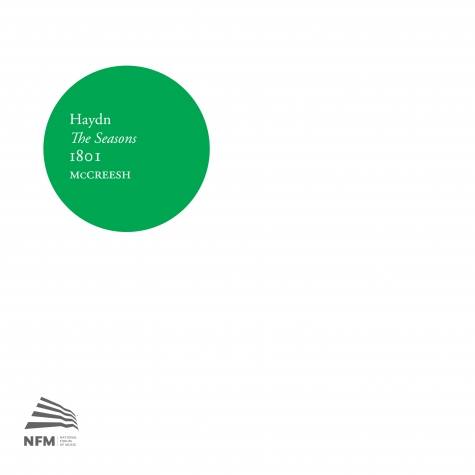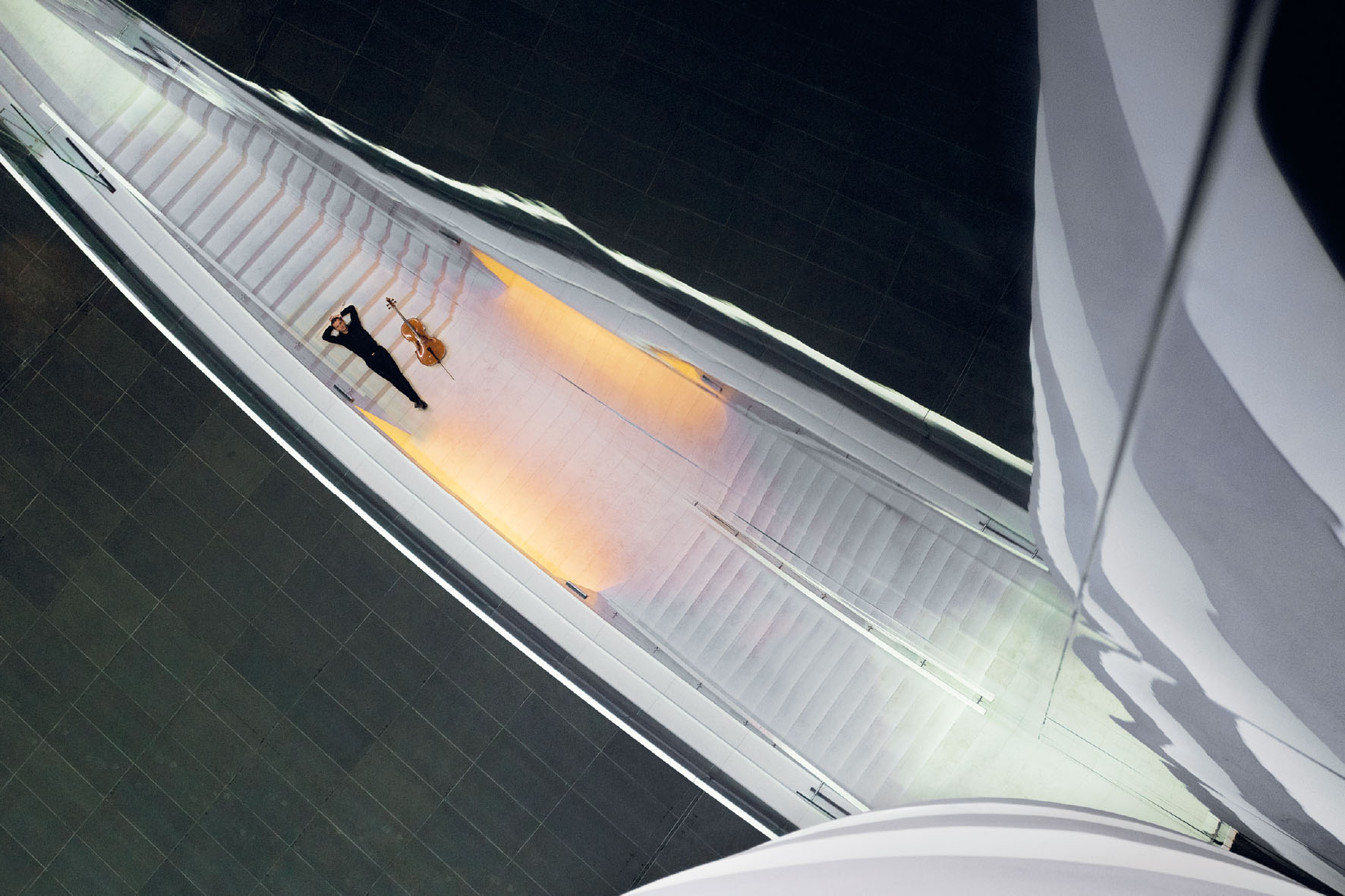Haydn | The Seasons 1801
On the fourth album in the series of great oratorios under the direction of Paul McCreesh with artists from Poland and the United Kingdom, including a new recording of Haydn’s last great oratorio, the forces of Wrocław Baroque Orchestra, The NFM Choir and the Gabrieli Consort & Players were joined, thanks to which it was possible to recreate the vast performance forces from Haydn’s Viennese period. The first major recording in one of the greatest concert halls in Europe – the National Forum of Music. An excellent, beautifully published album with a bilingual Polish-English booklet.
Album release: 2017
Publishers: Winged Lion, National Forum of Music
Conductor: Paul McCreesh
Performers: Carolyn Sampson, Jeremy Ovenden, Andrew Foster-Williams, NFM Choir, Gabrieli Consort & Players, Wrocław Baroque Orchestra
This is the fourth album in the series of great oratorios under the direction of Paul McCreesh, in which artists from Poland and the United Kingdom took part. The works published so far have been appreciated by music lovers and critics – these were Berlioz’s Grande Messe des morts (2011, BBC Music Magazine Technical Excellence Award 2012), Mendelssohn’s Elijah (2012, Diapason d'Or de l’Année 2013) and Britten’s War Requiem (2013, BBC Music Magazine Choral Award 2014). McCreesh specialises in the music of the Renaissance, Baroque, Classicism and early Romanticism, ensuring its authentic performance, consistent with the practice of the era. This time he presents his interpretation of one of the greatest works of Joseph Haydn. The recording was made in the Main Hall of the National Forum of Music, the most technologically advanced venue of this type in Poland. The performers included two NFM resident ensembles – the NFM Choir and Wrocław Baroque Orchestra. Like The Creation, Joseph Haydn wrote The Seasons under the supervision of Baron Gottfried van Swieten, an Austrian patron of the arts who also significantly influenced the musical career of Wolfgang Amadeus Mozart. Although there were some verbal skirmishes and comments from the composer, the effect is excellent – the collaboration undoubtedly resulted in the creation of a unique work.
Similarly to his work on The Creation, the baron was not satisfied with merely writing the text of the libretto. He often gave Haydn hints about the relationship between music and words. The baron’s remarks addressed to the composer were found on the manuscript of the libretto that Haydn used when creating the work. Although the composer followed some of the baron’s recommendations, whether he wanted it or not, it is widely known that he resented the nobleman’s suggestions. Especially those regarding the insertion of certain illustrative effects into the work, which he assessed as forced “French crap”. Although talking about The Seasons, we cannot ignore the significant influence of Baron van Swieten on the composition process, it is worth paying attention to the extremely important features of the work, which we owe to Haydn himself. The composer reveals himself as an excellent orchestrator and creator, presenting listeners with excellent musical impressions of the seasons. We will find here many analogies with the numerous symphonies written by Haydn (he wrote over a hundred of them!), and even a quote from the ever famous Andante from the “Drumroll” Symphony.
Haydn conducted both oratorios in both large and small line-ups, although the warmly received performances at the concerts of the Vienna Tonkünstler-Sozietät always took place with the participation of a huge number of musicians. Fortunately, most of the performance materials have survived to this day, enabling us to reconstruct a typical Viennese orchestra from the era: at least eighty string instruments, a triple line-up of woodwind instruments (divided into three separate Harmonies), double bassoons, trumpets and percussion, and a double line-up of trombones (probably without the bass trombone), a keyboard instrument and – in the case of The Seasons – as many as ten horns! The choir’s payroll was not as large as the size of the orchestra would suggest, and usually ranged from sixty to eighty singers. The Creation has already been recorded by several large ensembles; when it comes to The Seasons, this is probably the first such undertaking in the history of phonography.
The album is part of the publishing project carried out under the European Capital of Culture Wrocław 2016 programme. It was published thanks to funding from the Ministry of Culture and National Heritage.
Awards: nomination for an International Classical Music Award 2018 in the choral music category, nomination for the Gramophone magazine award 2017 in the best choral recording category, BBC Music Magazine album of the month, June 2017, for: “Substantial choral and orchestral forces captured in sound that is ‘both expansive and immediate’”











